Victoria's Secret ditched its Angels after a successful decades-long partnership. Take a closer look at how the concept was born - and why the lingerie chain thinks Angels are no longer relevant.
Mary Hanbury,Zahra Tayeb

- Victoria's Secret Angels have been synonymous with the lingerie brand for decades.
- However, as part of an extreme brand turnaround, the lingerie label is bidding them farewell.
- But how did Angels come about? Insider tapped into the history of the tradition since its inception.
This month, after nearly two decades, Victoria's Secret confirmed that it is ending its Angels brand.
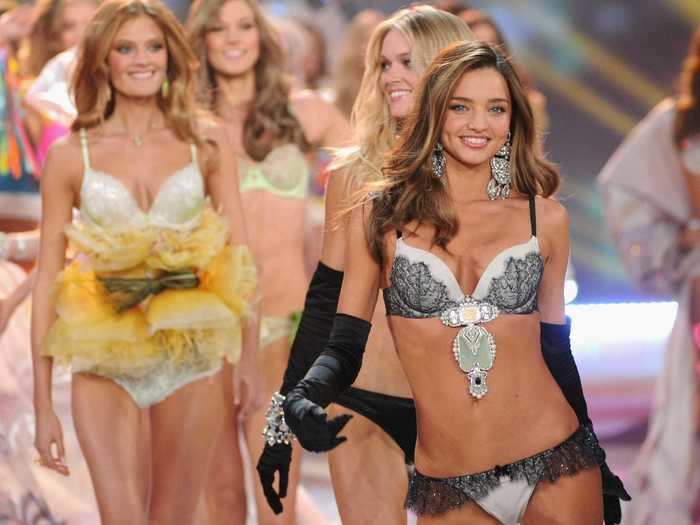
Its CEO Martin Waters said that the Angels were no longer "culturally relevant" and would not be a part of the brand as it undergoes a major turnaround effort.
Instead, it has taken on a group of seven new spokeswomen - a mix of activists and entrepreneurs to promote its new image.

This includes actress and entrepreneur Priyanka Chopra Jonas and soccer player and gender-equality activist Megan Rapinoe.
So how did the concept of an Angel first come about and why is it being abandoned?
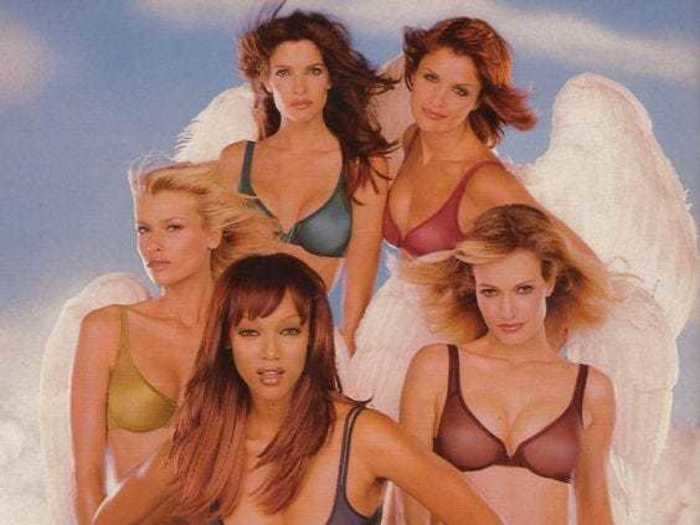
Models Helena Christensen, Karen Mulder, Daniela Peštová, Stephanie Seymour, and Tyra Banks were the first Angels.
The name was coined in 1997 after they appeared in an ad to promote Victoria's Secret's "Angels" underwear collection.
From then on, the Angels became an elite group of models that were carefully selected to become the face and voice of the brand.
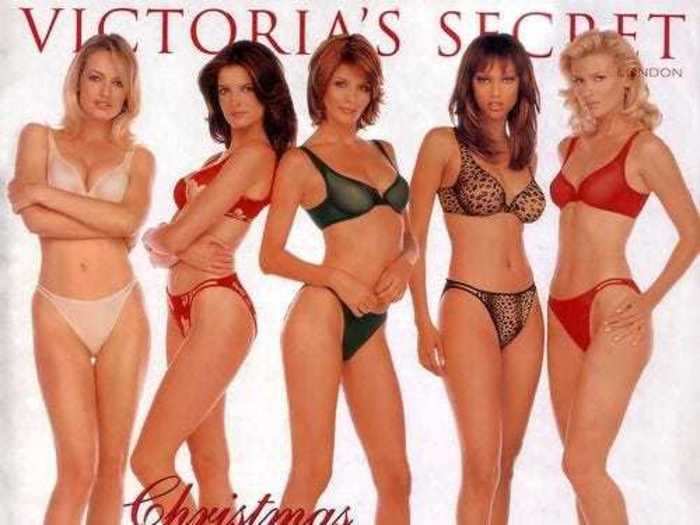
Since the late 1990s, these Angels have become one of the most well-known parts of the brand.
Though there have been hundreds of Victoria's Secret models over the years, many of which have walked its runway show, not all have made it to the elite status of an Angel.
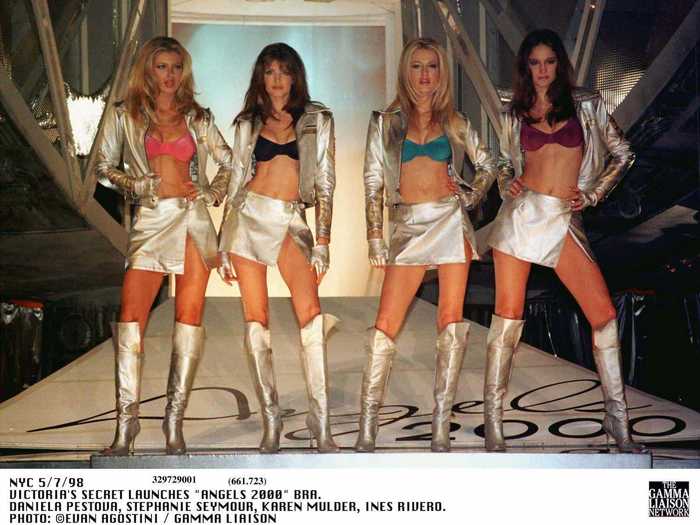
Through their contracts with Victoria's Secret, they were required to be featured in campaigns, talk shows, and runway events.
Victoria's Secret was previously vague about how their contracts worked and what they are actually expected to do.
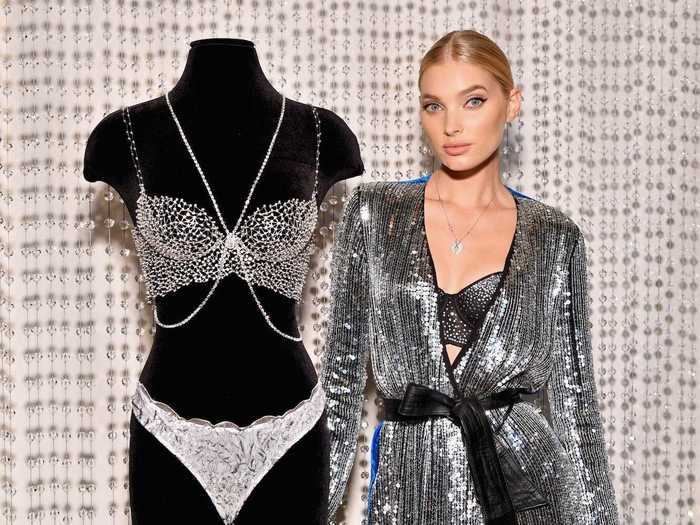
But reports indicate that being an Angel requires a big commitment of time and responsibility.
"Becoming an Angel means you are officially part of the family of Victoria's Secret," Elsa Hosk said in an All-Access video back in 2015.
"You are a spokesperson for the whole brand, and that is such a cool thing because it's one of the biggest, most amazing brands in the world," she said.
Angels get to go home with multi-million dollar pay cheques.
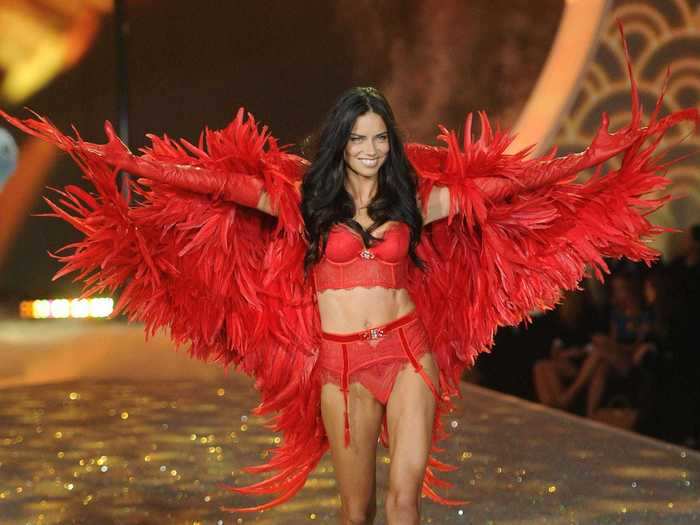
Although it is unclear how much angels are paid year on year, many were among some of the world's highest-paid models. As previously reported by Insider, 11 of the 17 women on Forbes' list for The Highest Paid Models 2016 have been Victoria's Secret Angels.
World-famous models including Gisele Bündchen and Adriana Lima, who hold a superior status with the brand, have finished years with multi-million-dollar salaries, per Insider. In 2018, Bündchen earned $30.5 million and Lima $10.5 million, but other Angels, including Taylor Hill and Jasmine Tookes took home $4 million.
But the level of commitment has meant that Victoria's Secret has lost Angels in the past.
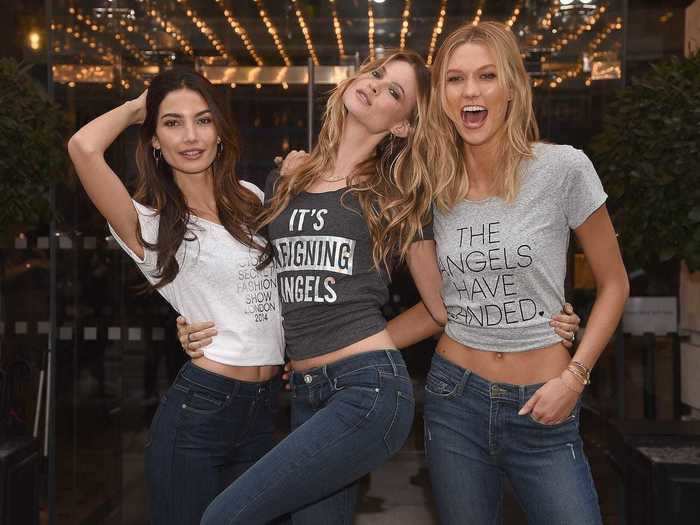
As previously reported by Insider, Doutzen Kroes and Karlie Kloss both pulled out of contracts early to focus on other commitments.
Sources highlighted to Page Six that relatively little pay over time was also a factor in Angels' decision to depart. "Older contracts like Alessandra Ambrosio used to be in the millions, now they're like $100,000," a source told the outlet.
There have been 41 Angels in total since 1997 when Christensen, Mulder, Peštová, Seymour, and Banks were first taken on.
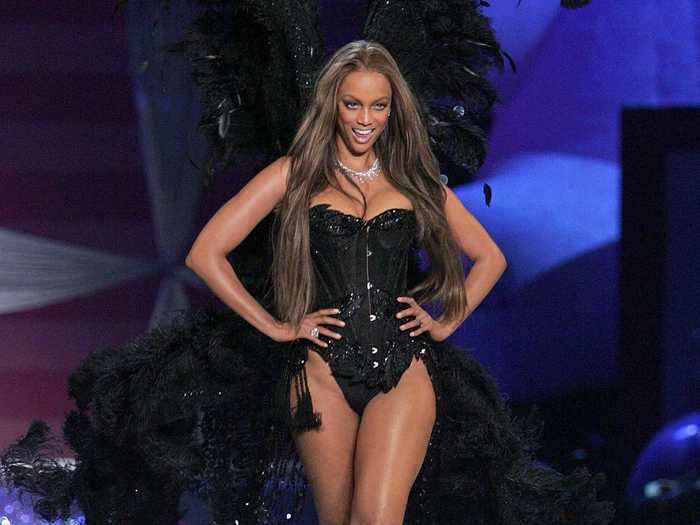
Banks was the first black model to become an Angel.
Over the years, these women became a defining part of its increasingly elaborate runway shows and risque brand image.
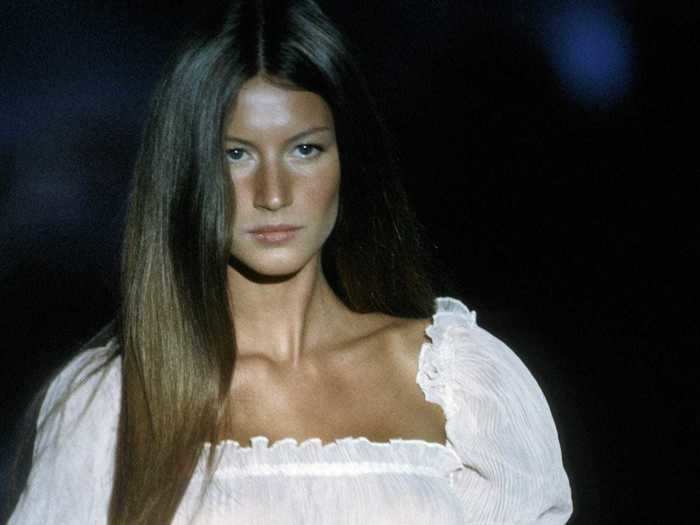
In 1999, its annual fashion show aired for the first time online and was described as the internet-breaking moment of that time after 1.5 million people tried to tune in and crashed the site.
The year after that, Angel Gisele Bündchen walked the runway in what was then the most expensive item of lingerie ever created, a $15 million diamond-and-ruby-encrusted 'Fantasy Bra.'
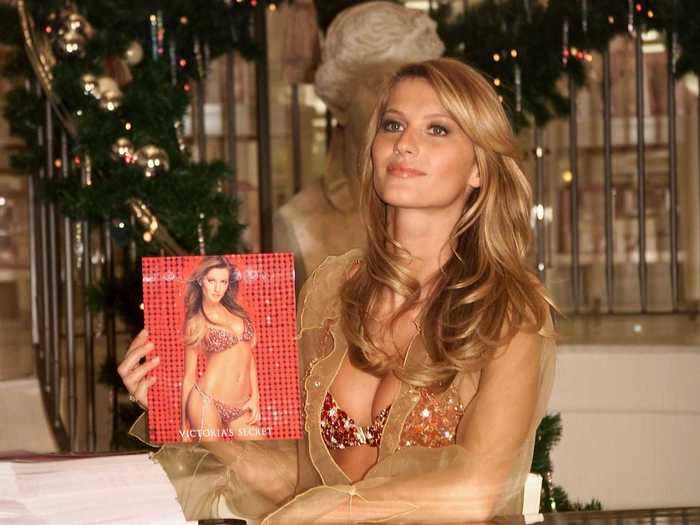
The tradition to wear a "Fantasy Bra" at every runway show came about in 1996 when Claudia Schiffer wore a diamond-encrusted bra that cost $1 million.
The shows became more lavish over the years.
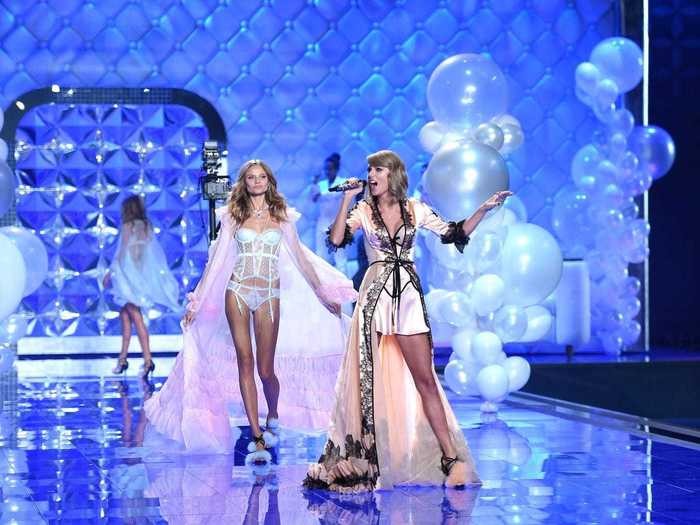
From popular musical acts including Taylor Swift and Kanye West, elaborate costumes and historical venues, to models sporting ornamental Angel "wings," that can take up to 400 hours of labor, down the runway, the shows became a yearly attraction for many.
Carrying the wings was no easy feat.
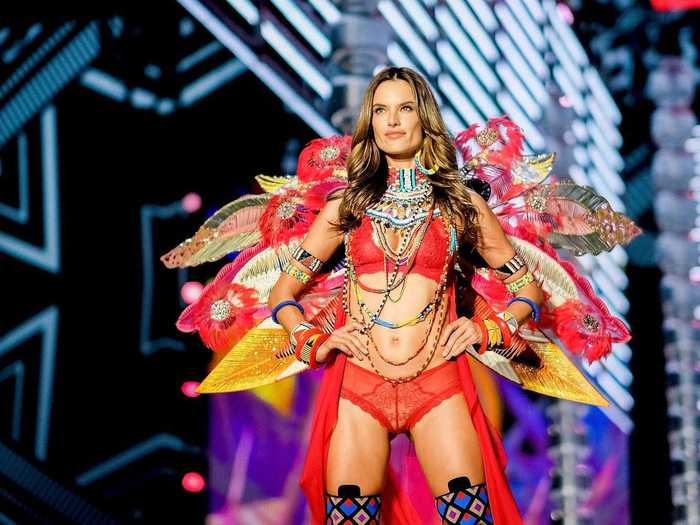
One year, Angel Alessandra Ambrosio revealed in an interview on "Late Night With Seth Meyers," that she wore one of the heaviest pairs of wings in history in 2011, weighing around 60 pounds, per Insider.
Some of the world's top supermodels including Gigi Hadid and Kendall Jenner were among the catwalk's line-up but never made it to Angel status.
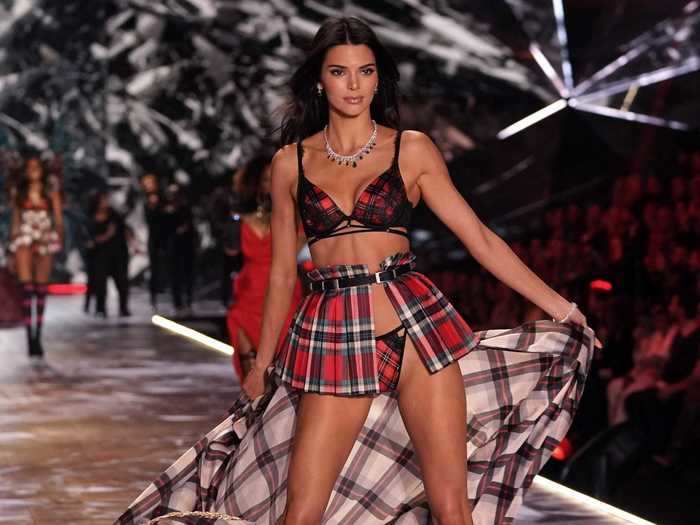
Between 2016 and 2018, Victoria's started to lose market share and its racy brand image. Angels were viewed as being increasingly out-of-touch and out of date in the wake of the #MeToo movement.
This came to a head in 2018, just weeks before its annual fashion show was due to air on television.
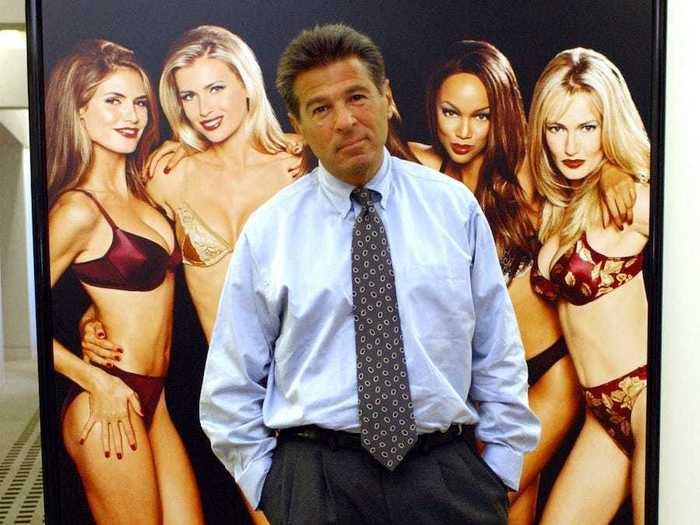
Ed Razek, the marketing chief and brains behind the show, caused a backlash after he made controversial comments about plus-size and transgender models in an interview with Vogue.
When the show aired on TV, viewership numbers sank by 34%.
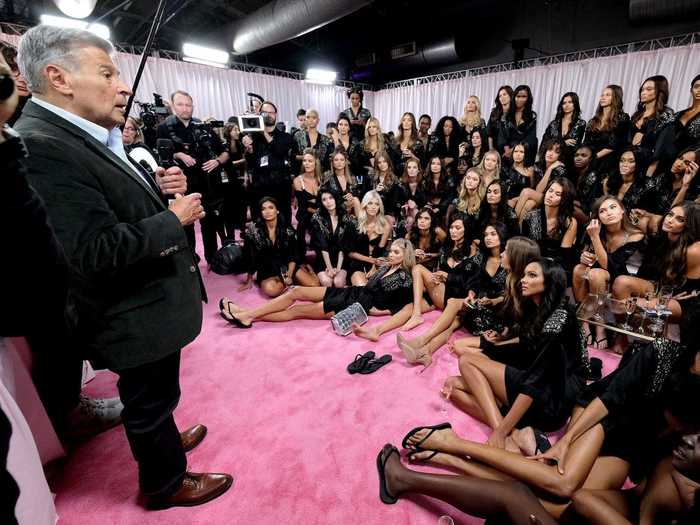
The year after, for the first time since it launched in 1995, the show was canceled just after Razek left the company.
The Angels stayed on and in early 2019, a new Angel was announced - Barbara Palvin.
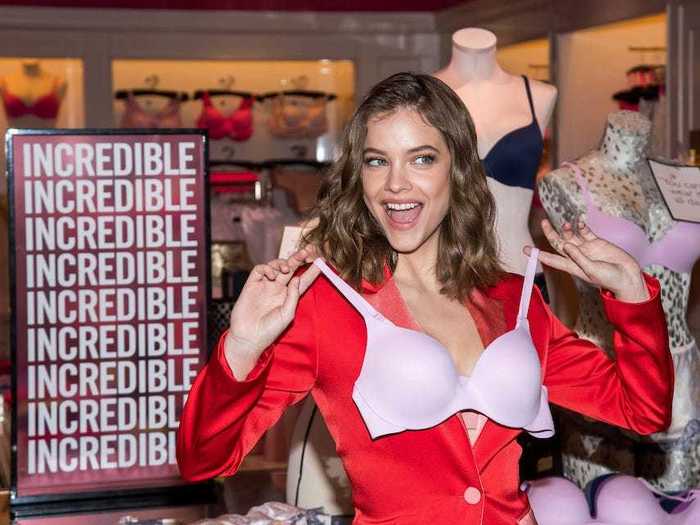
At the time, fans praised Victoria's Secret for selecting a more body-positive model, though she wasn't plus size.
Over the course of 2020, the company underwent some major changes.
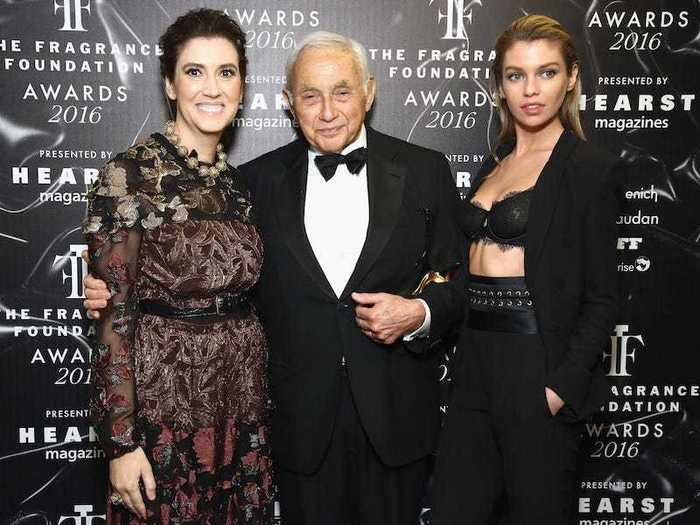
Its longtime leader Les Wexner stepped down and it began the hiring of a brand new executive team. This included a new marketing head and creative director.
And under new leadership, the brand is refocusing its image.
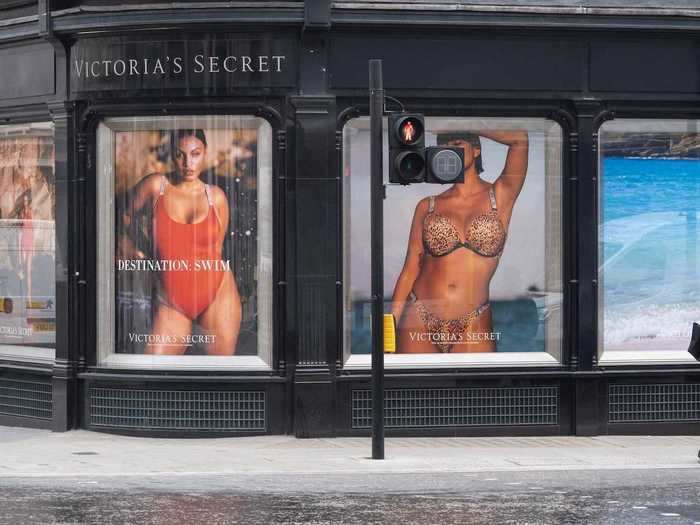
"We're moving from what men want to what women want," CEO Waters said about the company's repositioning, in a recent earnings call. "From sexy for a few to sexy for all."
"It's about including most women rather than excluding most women and being grounded in real life, rather than mostly unattainable," he said.
And that apparently means no Angels.
READ MORE ARTICLES ON
Popular Right Now
Popular Keywords
Advertisement